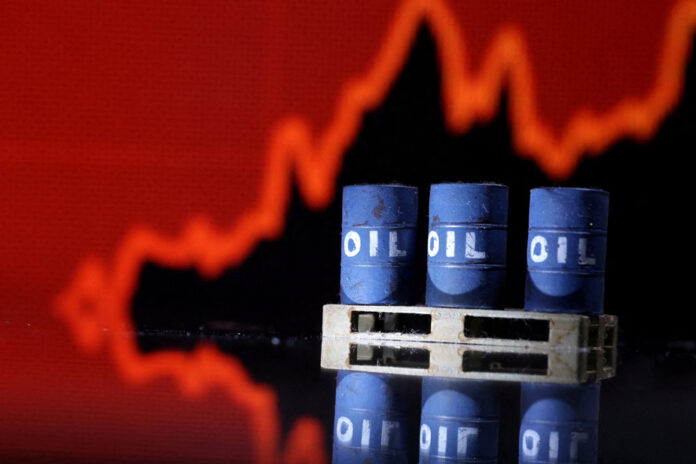(New York) Oil prices ended lower on Thursday, with the market taking a pause, marked by profit-taking, after a ten-day climb.
The price of a barrel of Brent North Sea oil for November delivery fell 0.75% to close at $89.92.
The barrel of American West Texas Intermediate (WTI), maturing in October, lost 0.76%, to 86.87 dollars, putting an end to a series of nine consecutive sessions of gains.
“It’s not a correction, but now that the latest news has been digested, we are entitled to some profit taking,” commented Stephen Schork of Schork Group.
The analyst was referring to the announcement on Tuesday of the extension of the cuts made by Saudi Arabia and Russia, which will reduce the volumes placed on the market by 1.3 million barrels per day, in total.
For Edward Moya of Oanda, the break in black gold is also due to the surge in the dollar, which reached multi-month highs on Thursday against a number of currencies, including the euro.
To these elements, José Torres, of Interactive Brokers, added the poor growth figures in Europe, “which calm fears about demand”.
Growth in the euro zone only reached 0.1% in the second quarter, compared to the previous three months, significantly less than the 0.3% expected by economists.
A picture that is all the less rosy as “all signs indicate that GDP (gross domestic product) will decline in the third quarter” in the zone, warned, in a note, Claus Visteren, of Pantheon Macroeconomics, who anticipates a contraction of 0.2% to 0.3%.
Traders also received poor macroeconomic news from China, where exports were down 8.8% year-on-year in August.
This accumulation of unfavorable price factors was not offset by the weekly report on US inventories, which nevertheless surprised.
Commercial crude oil reserves in the United States fell by 6.3 million barrels during the week ended September 1, three times the 2 million expected by analysts, according to a consensus established by the Bloomberg agency.
These stocks are now at their lowest since the beginning of December.
The report caused prices to rebound briefly, before falling again.
Stephen Schork does not rule out seeing Brent rise to $95, but not much beyond. “If we go to $100, then OPEC (Organization of the Petroleum Exporting Countries) would be playing a dangerous game, at the risk of suppressing demand,” the analyst said.
For Edward Moya, “oil’s progression could resume if the market begins to believe that China has reached a low point.”















